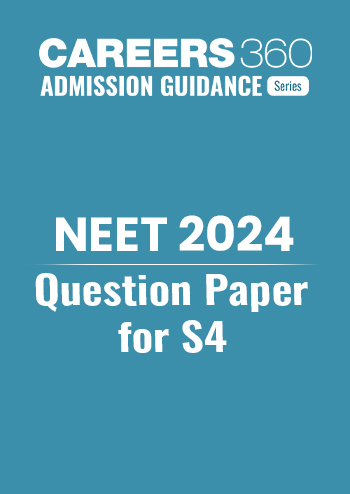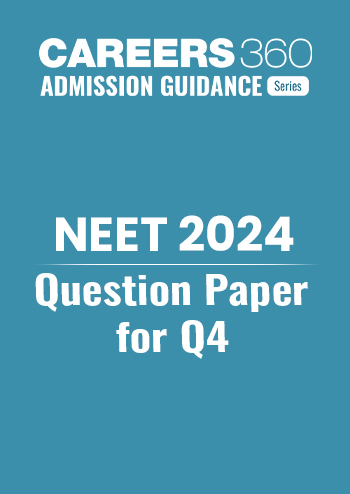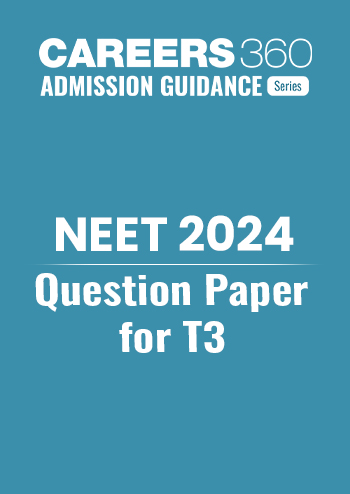Apply to Amrita Vishwa Vidyapeetham Allied & Life Science 2024
Menstrual Cycle - Practice Questions & MCQ
Edited By admin | Updated on Sep 18, 2023 18:34 AM | #NEET
Quick Facts
-
Menstrual Cycle is considered one the most difficult concept.
-
29 Questions around this concept.
Solve by difficulty
Menstrual flow occurs due to lack of:
Select the incorrect statement :
Which of the following events is not associated with ovulation in human female?
About which day in a normal human menstrual cycle does rapid secretion of LH (Popularly called LH-surge) normally occurs?
Which of the following events is not associated with ovulation in human female?
Concepts Covered - 1
Menstrual Cycle
- Menstruation is bleeding from the uterus of adult females at intervals of one lunar month.
- The cycle is necessary for the production of eggs and the preparation of the uterus for pregnancy.
- Beginning of menstruation or first menstruation is called menarche. It occurs between 12 and 15 years.
- In human females, menstruation is repeated at an average interval of about 28/29 days, and the cycle of events starting from one menstruation till the next one is called the menstrual cycle.
- One ovum is released (ovulation) during the middle of each menstrual cycle.
- The menstrual cycle can be divided into:
- Ovarian cycle, which is made up of:
- Follicular phase
- Ovulation
- Luteal phase
- Uterine cycle, which is made up of:
- Menstruation
- Proliferative phase
- Secretory phase
- Ovarian cycle, which is made up of:
- The cycle starts with the menstrual phase when menstrual flow occurs and it lasts for 3-5 days.
- The menstrual flow results due to breakdown of the endometrial lining of the uterus and its blood vessels which forms a liquid that comes out through the vagina.
- Menstruation only occurs if the released ovum is not fertilised.
- Lack of menstruation may be indicative of pregnancy.
- However, it may also be caused due to some other underlying causes like stress, poor health etc.
- The menstrual phase is followed by the follicular phase.
- During this phase, the primary follicles in the ovary grow to become a fully mature Graafian follicle and simultaneously the endometrium of uterus regenerates through proliferation.
- These changes in the ovary and the uterus are induced by changes in the levels of pituitary and ovarian hormones.
- The secretion of gonadotropins (LH and FSH) increases gradually during the follicular phase and stimulates follicular development as well as secretion of estrogens by the growing follicles.
- Both LH and FSH attain a peak level in the middle of the cycle (about 14th day).
- Rapid secretion of LH leading to its maximum level during the mid-cycle called LH surge induces rupture of Graafian follicle and thereby the release of an ovum (ovulation).
- The ovulation (ovulatory phase) is followed by the luteal phase during which the remaining parts of the Graafian follicle transform as the corpus luteum.
- The corpus luteum secretes large amounts of progesterone which is essential for the maintenance of the endometrium.
- Such an endometrium is necessary for implantation of the fertilised ovum and other events of pregnancy.
- During pregnancy, all events of the menstrual cycle stop and there is no menstruation.
- In the absence of fertilisation, the corpus luteum degenerates.
- This causes disintegration of the endometrium leading to menstruation, marking a new cycle.
- In human beings, menstrual cycles cease around 50 years of age; that is termed as menopause.
- Cyclic menstruation is an indicator of normal reproductive phase and extends between menarche and menopause.

Study it with Videos
"Stay in the loop. Receive exam news, study resources, and expert advice!"

Books
Reference Books
Clear your Basics with NCERT
E-books & Sample Papers
Get Answer to all your questions
NEET Articles
May 17, 2024
Back to top



















